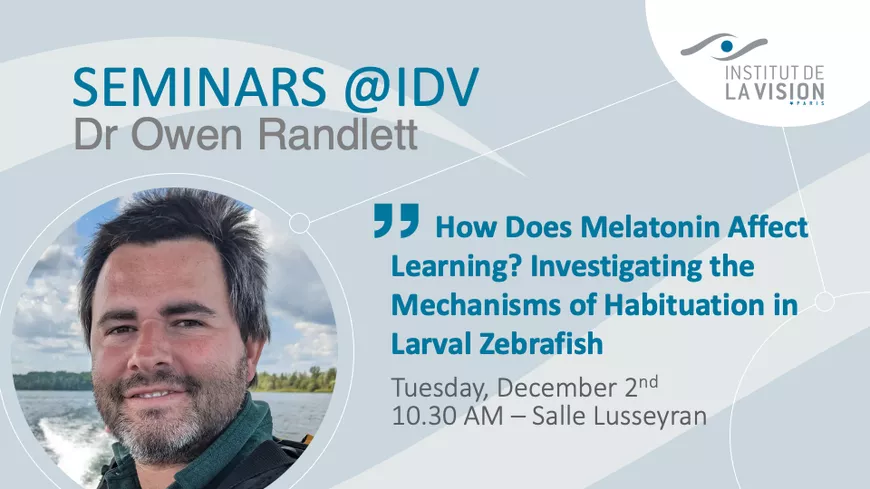Investigating the Mechanisms of Habituation in Larval Zebrafish
Invited by Elena Putti & Filippo Del Bene, Owen Randlett, PhD (MeLiS Institute in Lyon, France), will speak on Monday December 2nd at 10.30 AM. Meet in Salle Lusseyran.

Abstract
Larval zebrafish are widely used in systems neuroscience due to their small, accessible nervous system and their suitability for transgenic and genetic analyses. However, their immature brains have a limited capacity for learning, especially in forming long-term memories lasting more than a few minutes. To establish a robust model for studying neural circuit plasticity and memory formation, we have focused on habituation—the process by which animals learn to ignore repeated stimuli. Habituation is considered the simplest form of learning, and therefore may be easier for immature brains to implement, and for us to endeavour to understand comprehensively. Despite its conceptual simplicity, the neural mechanisms underlying habituation are not well understood. Behavioral, pharmacological, and genetic experiments indicate that multiple independent plasticity events contribute to different aspects of habituation behavior, revealing that sophisticated mechanisms underlie habituation even in the brains of simple model organisms.
I will describe our progress in studying a form of visual habituation where larval zebrafish learn to ignore abrupt global dimming stimuli, or “dark flashes”. I will focus on our recent results of how the conserved circadian hormone Melatonin enhances habituation, and how we are leveraging this system to understand the influence of circadian rhythms on neuroplasticity during learning.
About Owen Randlett
Owen Randlett obtained his Ph.D. from the University of Cambridge, where he investigated retinal development and neuronal morphogenesis. As a postdoctoral researcher at Harvard University, he developed the Z-Brain atlas, an open-source neuroanatomical reference for the zebrafish brain, and its application for automated whole-brain activity mapping using pERK immunostaining and Ca2+ imaging. He went on to establish high-throughput assays to study habituation learning. Owen started as a group leader in 2019 at the MeLiS Institute in Lyon, France, where his research explores the mechanisms of habituation learning, visual navigation, and models of neurological disorders in zebrafish.
